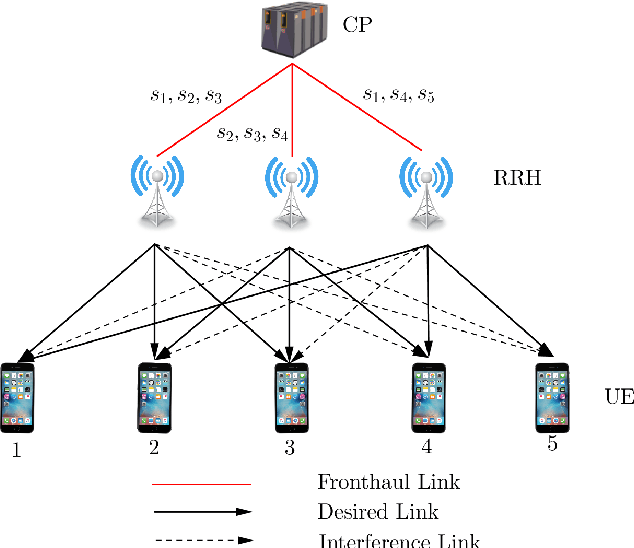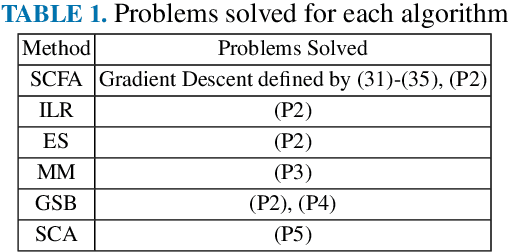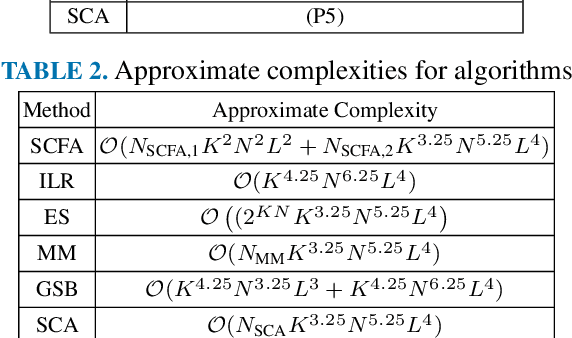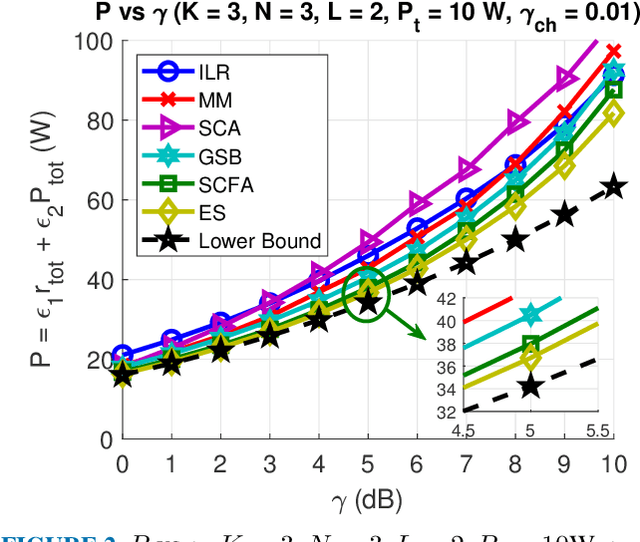Beamformer Design with Smooth Constraint-Free Approximation in Downlink Cloud Radio Access Networks
Paper and Code
Feb 13, 2021



It is known that data rates in standard cellular networks are limited due to inter-cell interference. An effective solution of this problem is to use the multi-cell cooperation idea. In Cloud Radio Access Network, which is a candidate solution in 5G and beyond, cooperation is applied by means of central processors (CPs) connected to simple remote radio heads with finite capacity fronthaul links. In this study, we consider a downlink scenario and aim to minimize total power spent by designing beamformers. We consider the case where perfect channel state information is not available in the CP. The original problem includes discontinuous terms with many constraints. We propose a novel method which transforms the problem into a smooth constraint-free form and a solution is found by the gradient descent approach. As a comparison, we consider the optimal method solving an extensive number of convex sub-problems, a known heuristic search algorithm and some sparse solution techniques. Heuristic search methods find a solution by solving a subset of all possible convex sub-problems. Sparse techniques apply some norm approximation ($\ell_0/\ell_1, \ell_0/\ell_2$) or convex approximation to make the objective function more tractable. We also derive a theoretical performance bound in order to observe how far the proposed method performs off the optimal method when running the optimal method is prohibitive due to computational complexity. Detailed simulations show that the performance of the proposed method is close to the optimal one, and it outperforms other methods analyzed.
 Add to Chrome
Add to Chrome Add to Firefox
Add to Firefox Add to Edge
Add to Edge